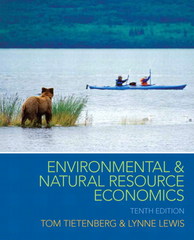Answered step by step
Verified Expert Solution
Question
1 Approved Answer
Under a flexible exchange rate system, if the quantity supplied of dollars is less than the quantity demanded of dollars, there is a: balance of
- Under a flexible exchange rate system, if the quantity supplied of dollars is less than the quantity demanded of dollars, there is a:
- balance of payments deficit and the dollar would appreciate.
- balance of payments surplus and the dollar would appreciate.
- balance of payments deficit and the dollar would depreciate.
- balance of payments surplus and the dollar would depreciate.
- A decrease in the demand for dollars on the foreign exchange market, all else equal, will result in:
- appreciation of the U.S. dollar and depreciation of the foreign currency.
- appreciation of the U.S. dollar and appreciation of the foreign currency.
- depreciation of the U.S. dollar and depreciation of the foreign currency.
- depreciation of the U.S. dollar and appreciation of the foreign currency.
- In the foreign exchange market, foreign residents wishing to purchase U.S. exports or U.S. real and financial assets must:
- demand U.S. dollars by supplying U.S. dollars.
- demand U.S. dollars by supplying their foreign currency.
- supply U.S. dollars by demanding their foreign currency.
- none of the above.
- The major factor contributing to the depreciation of the dollar in 2007-2008 was:
- higher U.S. interest rates resulting in higher capital outflows.
- lower U.S. interest rates resulting in lower capital outflows.
- higher U.S. interest rates resulting in lower capital outflows.
- lower U.S. interest rates resulting in higher capital outflows.
- The difference between interest income or receipts earned on investments in the rest of the world by the residents of a given country and the payments to foreigners on investments they have made in a given country is called:
- net investment income.
- capital expenditures.
- unilateral transfers.
- none of the above.
- In the foreign exchange market, U.S. residents wishing to purchase foreign exports or foreign real and financial assets must:
- demand U.S. dollars by supplying U.S. dollars.
- supply U.S. dollars by demanding foreign currency.
- demand U.S. dollars by supplying foreign currency.
- none of the above.
Step by Step Solution
There are 3 Steps involved in it
Step: 1

Get Instant Access to Expert-Tailored Solutions
See step-by-step solutions with expert insights and AI powered tools for academic success
Step: 2

Step: 3

Ace Your Homework with AI
Get the answers you need in no time with our AI-driven, step-by-step assistance
Get Started


